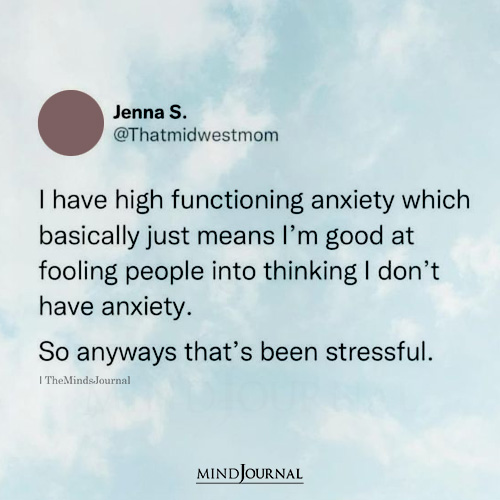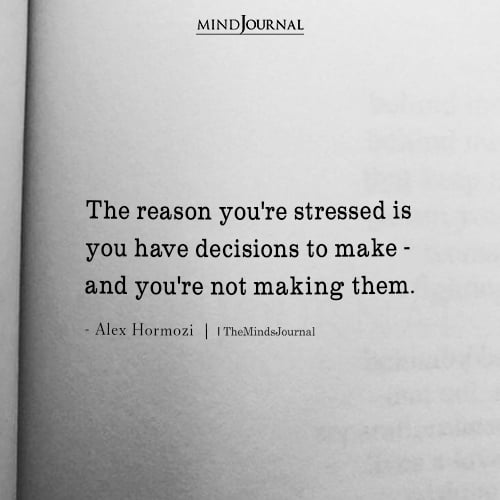Whenever you feel overwhelmed or frazzled, you tend to chalk it up to being stressed out. Even though it is definitely possible, sometimes there’s more to it than stress. In this article we are going to talk about a couple of differences between anxiety and stress.
Anxiety and stress might appear like two peas in a pod, but they are more like distant cousins at a family gathering. For sure, they have similarities yet each has its own unique symptoms.
So, let’s explore the differences between stress vs anxiety, and find out more about them. But first, let us understand what they mean.
Related: Am I Stressed or Anxious? How to Recognize the Difference and Cope
Anxiety and Stress
Imagine stress as a brief thunderstorm in your life, triggered by pressure or demanding situations. It’s your body’s natural reaction to a challenge, causing physical and emotional strain.
On the other hand, anxiety is more like that persistent rain that just won’t let up. It’s a constant worry or fear, often without a clear trigger, affecting daily life. While stress is typically short-lived, anxiety can linger and interfere with daily functioning.
Both can manifest with physical symptoms like increased heart rate and sweating. Understanding these distinctions between stress vs anxiety can help you navigate them properly, so that you can better handle your emotional and mental well-being.
Now that we know what are stress and anxiety, let’s find out what’s the difference between anxiety and stress.
5 Differences Between Anxiety And Stress
1. Nature of response.
When it comes to stress vs anxiety, stress can be compared to a rapid fire response system which gets triggered by external pressures. It’s like your body is trying to deal with several challenges such as upcoming exams, financial burdens and looming deadlines.
Think of it as a temporary surge of energy, often characterized by heightened alertness and a sense of urgency. Stress tends to be short-lived, going away once you manage to deal with the stressor.
Anxiety on the other hand feels like a constant ringing in the background, accompanied by a nagging feeling or apprehension and uncertainty that keeps on ringing alarm bells, even though there’s no threat in sight.
Unlike stress, which can be narrowed down to a particular trigger, anxiety is more nebulous and most of the time, lacks a clear trigger. This constant state of worry tends to continue for weeks, months, or even years, impacting your daily life and well-being.

2. Duration and persistence.
This is one of the most important differences between anxiety and stress.
Stress is something that comes and goes, just like a passing rain shower which dissipates once the storm clouds of a particular stressful event have disappeared. For example, once you finish that assignment you were procrastinating about, your body usually returns to its normal level.
In contrast, anxiety seems to be an “obstinate fog” that never goes away and may last for long periods of time. It’s like a white noise in the background which keeps varying in degree, but doesn’t fade away completely.
Related: What Causes Anxiousness? 9 Factors That Lie At The Root Of Anxiety
3. Physical symptoms.
Stress can cause all sorts of physical reactions such as tightness in the chest or a racing heartbeat that signals the body’s heightened state of arousal. However, these responses normally subside once the stressor is dealt with.
Manifestations of anxiety might present themselves in the same way, however, they tend to linger on like an unwanted guest. Other than well-known symptoms such as muscle tension and stomach discomfort, anxiety could be accompanied by other signs like insomnia, chronic fatigue and irritability.
4. Focus of apprehension.
Stress tends to zone in on particular pressure triggers like job interviews or giving an important presentation at work, forcing you to focus your thoughts on certain events or circumstances. It’s like spotlighting a single scene in the drama of life.
Anxiety on the other hand, casts a wider net, bringing your focus to multiple stressors or possible stressors. It’s like you have a persistent background song playing that touches on your fear of the future, health concerns, relationship issues, work matters, finances and more.

5. Impact on Functioning
Another one of the most important differences between anxiety and stress is this.
Stress may throw a wrench in the gears of productivity and performance temporarily, like a speed bump on the road of life. However, once the stressor dissipates, you are able to resume your normal functioning without any long-term consequences.
Anxiety, on the other hand, acts like a persistent shadow, that interferes in every aspect of your life. It’s like you’re caught up in a tangled web that ensnares your social life, personal relationships and even work. Anxiety can often cause you to avoid certain situations, leading to a diminished quality of life.
Related: Stress Is Contagious: Understanding The Ripple Effect Of Stress
Takeaway
On the whole, though there are some common symptoms between stress vs anxiety, there are quite a few differences between anxiety and stress.
Stress is a brief visitor that responds to specific triggers while anxiety is a long-term companion casting a much wider shadow over your everyday life. Understanding what’s the difference between anxiety and stress is crucial for you to effectively navigate your way towards having better emotional and mental well-being.











Leave a Reply